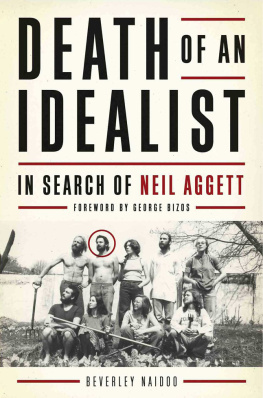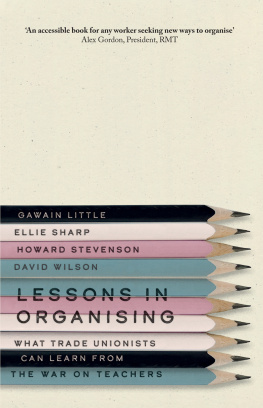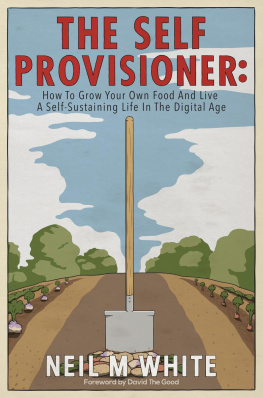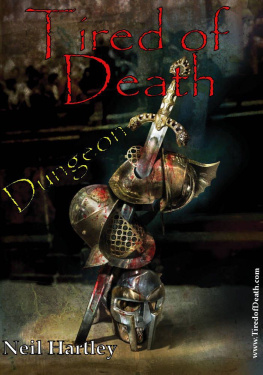Description
... the detainees in police cells or in prisons are being detained under the most favourable conditions possible ... All reasonable precautions are being taken to prevent any of them from injuring themslves or from being injured in some other way or from committing suicide.
Minister of Police Louis le Grange in the Houses of Parliament, 1982
Two days later, Dr Neil Hudson Aggett was found hanging from the bars of the steel grille in his cell in John Vorster Square. He had spent 70 days in detention. He was the 51st person, and the first white person, to die in detention. He was 28.
His death provoked an enormous public outcry, his funeral attended by thousands of workers who marched through the streets of Johannesburg. This quiet, intense young man was, in death, a peoples hero.
Born to settler parents in Kenya in 1953, Neil Aggett moved with his family to South Africa in early childhood. He attended school in Grahamstown before studying medicine at the University of Cape Town. DEATH OF AN IDEALIST explores the metamorphosis of a high-achieving, sport-loving schoolboy into a dedicated activist and unpaid trade union organiser.
Beverley Naidoo traces Neil Aggetts life, in particular the years leading up to his detention as a result of a Security Branch sting operation, the weeks of interrogation, and the inquest that followed his death. She recreates the momentous events of his life and, in doing so, reveals the extraordinary impact Neils life had on those around him including his family, friends and comrades.
Today, a generation later, South Africa is free and democratic. Yet the idealism and sacrifice displayed by Neil Aggett and so many others appears to have been replaced by cynicism and hand-wringing. DEATH OF AN IDEALIST is as much the story of a remarkable young man as it is a reminder that every generation needs its idealists.
Quotes
This is an extraordinary work of scholarly engagement on the life and death of one of South Africas greatest idealists. It is also a story of discovery by the author, as she reveals the complex layers of her shared family history with Neil Aggett. It is a vital contribution to a rediscovery of a generation that foresaw what a truly liberated South Africa could become and, in the case of Neil Aggett, paid the ultimate sacrifice in trying to realize it.
Professor Edward Webster
This is the story of a young doctors death in custody. But it is more than that. In the sensitive hands of the acclaimed writer, Beverley Naidoo, it is the unmasking of a system where torture was allowed to operate with impunity, where national security was invoked to prevent public scrutiny, where the legal system colluded in injustice and where the Rule of Law was corrupted. There are powerful and universal lessons for all time in the telling of this story. Our collective memories require a regular jolt to remind us of the need for human rights protections the world over. We have to keep the call for justice forever on our lips.
Helena Kennedy QC
Title Page
Death of an Idealist
In Search of Neil Aggett
Beverley Naidoo
JONATHAN BALL PUBLISHERS
JOHANNESBURG & CAPE TOWN
Dedication
To all those who loved Neil, and to idealists, young and old, who strive for a just society
ABBREVIATIONS
Abbreviations
AFCWU | African Food and Canning Workers Union |
ANC | African National Congress |
CCAWUSA | Commercial, Catering and Allied Workers Union of South Africa |
COSATU | Congress of South African Trade Unions |
CUSA | Council of Unions of South Africa |
DLB | Dead letter box |
DPSC | Detainee Parents Support Committee |
EDA | Environment and Development Agency |
FCWU | Food and Canning Workers Union |
FOSATU | Federation of South African Trade Unions |
GAWU | General and Allied Workers Union |
IAS | Industrial Aid Society |
ILO | International Labour Organization |
KAU | Kenya African Union |
KPR | Kenya Police Reserve |
LKB | Langeberg Kooperasie Beperk |
MAWU | Metal and Allied Workers Union |
MK | Umkhonto we Sizwe |
NIS | National Intelligence Service |
NUSAS | National Union of South African Students |
SAAWU | South African Allied Workers Union |
SACC | South African Council of Churches |
SACP | South African Communist Party |
SACTU | South African Congress of Trade Unions |
SAP | South African Police |
SASO | South African Students Organisation |
SASPU | South African Students Press Union |
SB | Special Branch or Security Branch (South African Police) |
SRC | Students Representative Council |
TRC | Truth and Reconciliation Commission |
Note on terminology: South Africas history has left us with problematic racialised language for example, Coloured. We are caught in an impossible trap when describing historical reality. But readers would be driven mad were I to put all the so-called population groups in quotation marks, so I have used none.
FOREWORD BY GEORGE BIZOS
Foreword
The struggle of man against power is the struggle of memory against forgetting.
Milan Kundera, The Book of Laughter and Forgetting
The Aggett inquest was a mirror held up to reflect the unimagined depths of depravity, brutality and destruction employed by the Security Police.
Helen Joseph, Founder member Congress of Democrats, Treason Trialist and the first person put under house arrest
The vast propaganda machine of the State creates a situation in which people do not know their own history. For instance, we have lived through the period in which Neil Aggett died. What steps have we taken to ensure that the lessons of today will be taught to our children?
Dullah Omar, first Minister of Justice in a democratic South Africa
BEVERLEY NAIDOOS DEATH OF AN IDEALIST IS AN IMPORTANT contribution to the history of the struggle for freedom in South Africa. Dr Neil Aggett, who died in detention on 5 February 1982, was a socially conscious young man. His dedication to his medical and trade union work, his commitment to labour activism, his uncompromising principles and his tragic death make him a very worthy subject of the insightful tribute offered in this book.
Under the apartheid regime, those with close links to African trade unions were closely scrutinised. From the mid-1970s there was a surge of trade union activity by the African workforce. Students across the country, both black and white, became involved in what was known as the Wages Commission, a euphemism for trade union work used by labour activists to avoid the regimes scrutiny. The National Union of South African Students (NUSAS) was at the forefront of a campaign for the recognition of trade unions and the release of political prisoners. Charles Nupen and Karel Tip, two NUSAS presidents, Glenn Moss, the president of the Wits Students Representative Council, Cedric de Beer, a student leader, and Eddie Webster, a Sociology lecturer at the same university, were acquitted of charges that they were furthering the objects of the ANC and the Communist Party. The trial, in which Arthur Chaskalson, Denis Kuny, Raymond Tucker, Geoff Budlender and I acted as counsel, lasted ten months.
Next page











